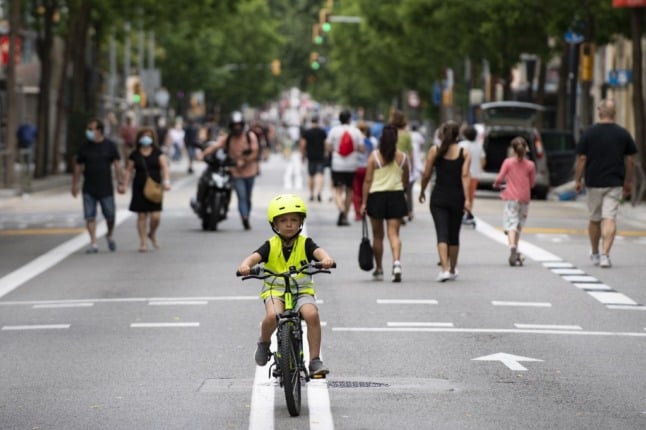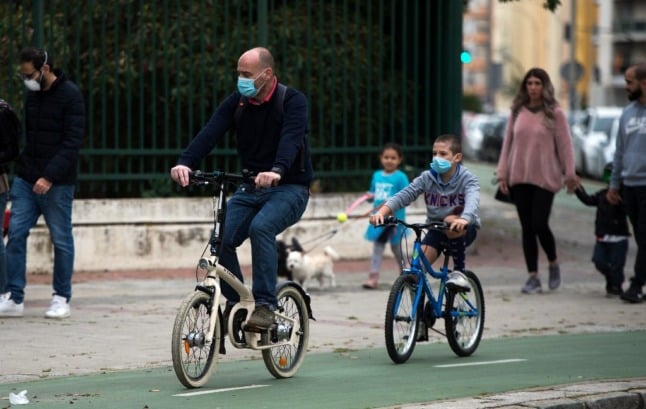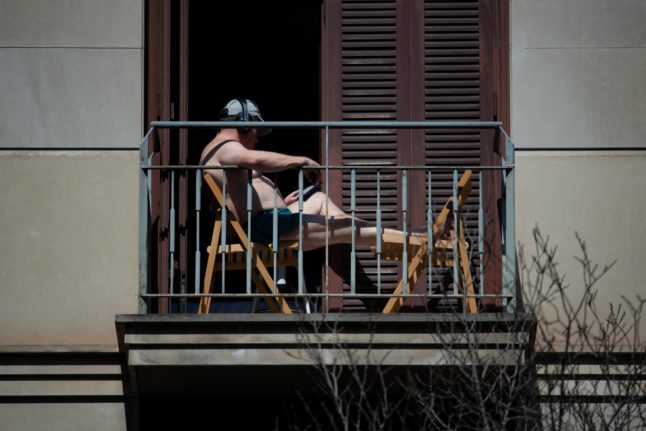The children take to the streets every Friday in the city’s Eixample neighbourhood, picking up other kids along the circuit and dropping them off at their schools, as a traditional bus route would work.
The roads are closed to traffic to make sure the young riders are safe, and parents often join in, sometimes carrying younger children in bike seats.
The programme, which was rolled out in September, has been so popular that other neighbourhoods are hoping to replicate it — and interest has been piqued internationally as well.
“In several months, there will be other routes in other neighbourhoods,” said Genis Domínguez, 40, whose children go to school in Eixample, home to wide avenues and stylish shops.

“They are very close to the streets where cars go too fast and motorcycles get too close,” he told AFP.
Municipal police are available to escort the children, with officers on bicycles or motorcycles travelling in the front, back or next to the group.
Barcelona’s city hall said the goal of the scheme is to “promote a change toward a more sustainable and active mobility”.
Around 140 children use the two “bicibus” routes that currently operate in Eixample, but parents from 35 schools across Barcelona took part in a recent meeting to learn how to set them up in their neighbourhoods, said Dominguez.
Similar projects already exist in other cities such as Dublin, but a viral video of Barcelona’s “bicibus” has sparked interest in the scheme around the world, including from Buenos Aires and San Francisco.
So far, it’s proven popular among the pint-sized participants.
“Parents tell us that Friday is the day when they have the least difficulty to wake up their children,” said Domínguez.



 Please whitelist us to continue reading.
Please whitelist us to continue reading.
Member comments